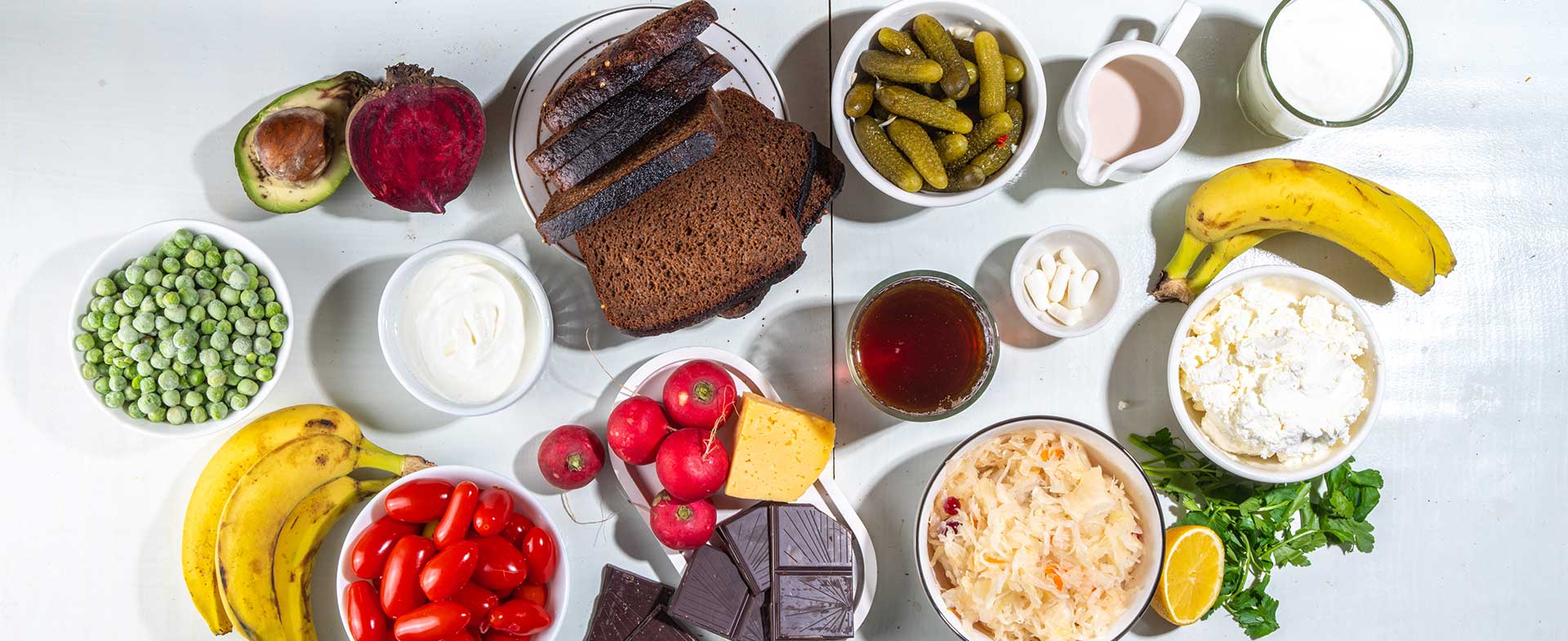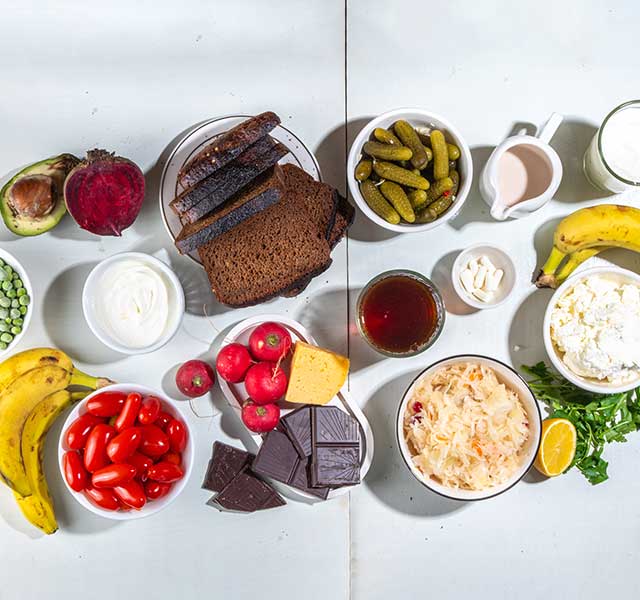The microbiome—or the thousands of species of beneficial bacteria that live in us and on us—is key to maintaining our health. Each species, in fact, plays a different role in protecting our mental and physical health. For example, certain strains of bacteria may:
- Decrease inflammation
- Ease symptoms of IBS, or irritable bowel syndrome
- Help with insulin sensitivity
- Protect the gut lining
- Help manage symptoms of IBD, or irritable bowel disease
- Assist with weight management (a specific strain of bacteria has been recently found to help manage appetite)
- Support the immune system
- Aid in the management of depression and anxiety
- Reduce the risk of ADHD
- Prevent and treat allergies
But because of overuse of antibiotics (and perhaps adherence to the guidelines of a squeaky clean society) many of us don’t have as diverse of a microbiome as we should.
That’s where probiotics come into play: they’re supposed to increase the bacteria in our gut microbiome. “Probiotics are a non-pathogenic microorganism, that when ingested, have a positive influence on someone’s health and physiology,” says Ryan Barish, M.D., a functional medicine physician at Henry Ford Health. “The casual definition, however, is that probiotics are beneficial bacteria that people ingest either in supplement or food form.”
Fermented foods like sauerkraut, yogurt and kimchi are filled with probiotics. Adding them into your diet can give your gut a healthy boost of bacteria. But prebiotics are just as important in maintaining a healthy gut microbiome: they’re the food that feed bacteria to help them proliferate. They consist of fiber-rich, plant-based foods like cauliflower, kale, raspberries, artichoke, garlic, onions, leeks, asparagus, bananas, oats, apples—and the list continues.
The Benefits Of Probiotic & Prebiotic Supplements
With so many health benefits associated with a robust microbiome, should everyone be taking probiotic and prebiotic supplements? Or is it enough to eat foods containing probiotics and prebiotics?
“Prebiotics are prevalent in fiber-rich plant foods, but it’s estimated that 70% of the American diet is devoid of fiber-rich foods,” says Dr. Barish. “If someone is meeting or exceeding their daily recommended fiber intake, they might not need a prebiotic supplement. Also, eating a wide variety of fiber-rich, plant-based foods further improves the diversity of bacteria and results in a more robust microbiome, because different types of dietary fiber feed different strains of beneficial bacteria. But if someone’s diet isn’t up to par, that’s where a prebiotic supplement comes in. Life gets in the way and none of us eat perfectly.”
The only tricky issue with prebiotic supplements is that if you have bloating issues—especially due to SIBO, or small intestine bacteria overgrowth—ingesting a fiber-rich prebiotic supplement may cause your symptoms to worsen, says Dr. Barish. So it’s always best to check with your doctor before adding any prebiotic supplement into your repertoire.
As for probiotic supplements, they can also be a beneficial addition to your diet, especially if you have digestive issues. But again, it’s a good idea to talk to your doctor before taking a probiotic. There are so many different types of probiotic supplements on the market, with so many different strains, and one size doesn’t fit all.
“Your functional medicine doctor may order diagnostic stool testing to help determine which dietary modifications or supplements you will likely benefit from,” says Dr. Barish. “And they can also recommend a probiotic supplement that’s high quality. Since we’re dealing with bacteria, you want to be sure the brand has high standards and good manufacturing practices. Stick with brands that go above and beyond to strain identify. It’s also important to ensure the strains are purified and that there’s nothing else growing in there that you don’t want.”
Finally, you also want to make sure the bacteria survive the digestive process—i.e., that you’ll actually benefit from them—which is another reason you want to work with someone who can advise you on the variety of brands, doses and strains of probiotics that are best suited to you.
“At the root of most chronic health issues is underlying inflammation, and not enough good bacteria—or not diverse enough bacteria—can cause inflammation,” says Dr. Barish. “So taking steps to ensure your gut microbiome is healthy may help with a variety of issues you may be experiencing, from digestive issues to depression, anxiety and even urinary tract infections. Whether that means overhauling your diet with the help of a doctor, taking a doctor-recommended probiotic, exercising—and more—probiotics and prebiotics can definitely be a part of a well-rounded health and wellness regimen.”
To find a doctor at Henry Ford, visit henryford.com or call 1-800-436-7936.
Dr. Ryan Barish is a functional lifestyle medicine physician at Henry Ford Health. He sees patients at Henry Ford Medical Center in Royal Oak.



